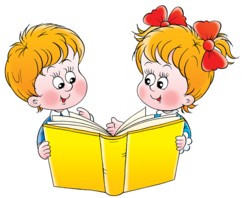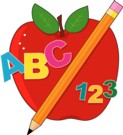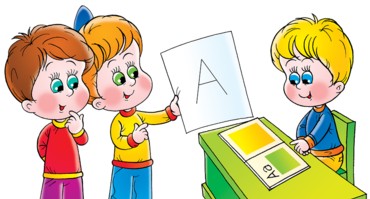
Tuition in Beginning & Early Reading Skills in Reading and the Berkshire area
For young children at the early stages of reading and older children with reading difficulties. Age 4+.
Designed to support young children who are at the beginning/early stages of reading or older children who are struggling with the development of early reading skills. Following initial assessments, children receive a series of planned lessons that cater for their individual needs. Depending on the child's level of development, lessons focus on such aspects as:-
Phonemic Awareness
Phonemic awareness is a critical pre phonics, pre reading skill. Children need to become aware that sounds work together to form words and to learn to distinguish the sounds. For example, young children learn that putting these three sounds together c/a/t will make the word cat, that by changing some of the sounds new words are formed, e.g. s/a/t and s/i/t and that some words rhyme as in cat, sat, mat, hat.
Phonics/Letter Sound Correspondence
Understanding the relationship between letters of the written language and the sounds, or phonemes, of spoken language is another esential skill.
Children are supported in recognising/identifying:-
-letters of the alphabet
-simple words of one syllable, e.g. cat, chip
-key words, e.g. I, he, she, said, play
-words with different vowel patterns/sounds, e.g. eat, been
-words of more than one syllable, e.g. pretty, wanted
Children are also supported in developing a range of reading strategies to make meaning from the text.
Reading and Writing Simple Sentences
Reading and writing are closely linked and children are encouraged to make, read and write simple sentences using word cards and sentence makers. This supports children in developing reading, writing and spelling skills.
Fluency and Intonation
Early reading programmes aim to support children in becoming fluent, accurate
readers of simple fiction and non-fiction texts using intonation where appropriate.
Comprehension
Children are supported in making meaning from the text - asking and answering questions
about the text, identifying and sequencing main ideas and events, predicting what may
happen next and more...
Information Retrieval from Non Fiction Texts
Children are supported in developing the ability to retrieve information from a range of
simple non fiction texts making use of contents pages, index pages, headings,
sub-headings. simple glossaries, dictionaries, encyclopedias and more..
For young children at the early stages of reading and older children with reading difficulties. Age 4+.
Designed to support young children who are at the beginning/early stages of reading or older children who are struggling with the development of early reading skills. Following initial assessments, children receive a series of planned lessons that cater for their individual needs. Depending on the child's level of development, lessons focus on such aspects as:-
Phonemic Awareness
Phonemic awareness is a critical pre phonics, pre reading skill. Children need to become aware that sounds work together to form words and to learn to distinguish the sounds. For example, young children learn that putting these three sounds together c/a/t will make the word cat, that by changing some of the sounds new words are formed, e.g. s/a/t and s/i/t and that some words rhyme as in cat, sat, mat, hat.
Phonics/Letter Sound Correspondence
Understanding the relationship between letters of the written language and the sounds, or phonemes, of spoken language is another esential skill.
Children are supported in recognising/identifying:-
-letters of the alphabet
-simple words of one syllable, e.g. cat, chip
-key words, e.g. I, he, she, said, play
-words with different vowel patterns/sounds, e.g. eat, been
-words of more than one syllable, e.g. pretty, wanted
Children are also supported in developing a range of reading strategies to make meaning from the text.
Reading and Writing Simple Sentences
Reading and writing are closely linked and children are encouraged to make, read and write simple sentences using word cards and sentence makers. This supports children in developing reading, writing and spelling skills.
Fluency and Intonation
Early reading programmes aim to support children in becoming fluent, accurate
readers of simple fiction and non-fiction texts using intonation where appropriate.
Comprehension
Children are supported in making meaning from the text - asking and answering questions
about the text, identifying and sequencing main ideas and events, predicting what may
happen next and more...
Information Retrieval from Non Fiction Texts
Children are supported in developing the ability to retrieve information from a range of
simple non fiction texts making use of contents pages, index pages, headings,
sub-headings. simple glossaries, dictionaries, encyclopedias and more..

Educational Consultant
B.Ed (Hons)
M.Sc (School Management)
DPSE (Language)
Over 30 years teaching experience
Over 20 years experience in advising and supporting schools on the teaching of English
Free initial assessments/ Discussion with parents
Personalised lesson plans linked to the English National Curriculum programmes of study & the National Strategy - designed to complement
school lessons
(where relevant)
Range of effective strategies & teaching methods employed
Regular feedback to parents
B.Ed (Hons)
M.Sc (School Management)
DPSE (Language)
Over 30 years teaching experience
Over 20 years experience in advising and supporting schools on the teaching of English
Free initial assessments/ Discussion with parents
Personalised lesson plans linked to the English National Curriculum programmes of study & the National Strategy - designed to complement
school lessons
(where relevant)
Range of effective strategies & teaching methods employed
Regular feedback to parents
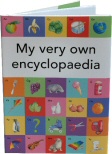
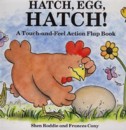
English tuition in Berkshire, Reading, Caversham, Earley, Woodley, Winnersh, Charvil, Twyford, Wargrave, Henley, Maidenhead, Wokingham, Shinfield, Finchampstead
Reading tuition in Berkshire, Reading, Caversham, Earley, Woodley, Winnersh, Charvil, Twyford, Wargrave, Henley, Maidenhead, Wokingham, Shinfield, Finchampstead
Reading tuition in Berkshire, Reading, Caversham, Earley, Woodley, Winnersh, Charvil, Twyford, Wargrave, Henley, Maidenhead, Wokingham, Shinfield, Finchampstead



English Tuition in Reading
Early Writing Skills/KS1 Writing Skills/KS2 Spelling & Handwriting English As An Additional Language
